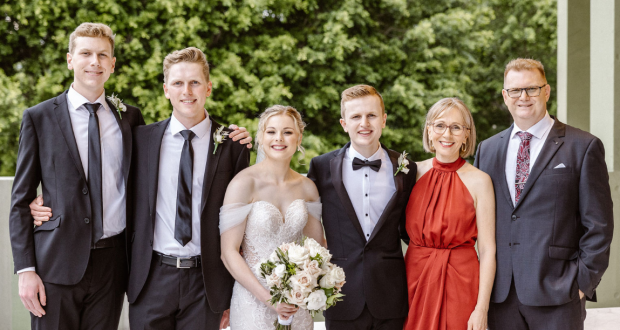I am not good with the sight of blood; it’s not that I feel queasy, faint, or experience any other physical reaction; it’s simply that the sight of blood causes my brain to create horrific images that I just don’t need to imagine. Similarly, ‘wounds’, such as those suffered by Jesus on the cross, invoke those same shocking images.
However, for many in modern society, wounds are not just physical. People can be whole physically but still very wounded. The World Health Organisation (WHO) defines health as “a state of complete physical, mental and social well-being and not merely the absence of disease or infirmity”. Globally, the WHO also reports that one in seven 10-19year-olds experiences a mental health issue, with depression, anxiety and behavioural disorders among the leading causes of illness and disability among young people. Untreated, poor mental health can lead to a lifetime of ongoing health issues for numerous adolescents.
Many people from secular society will be rejoicing in the recent announcement by the new federal Education Minister to allow schools to choose whether they have a chaplain or a professionally qualified student welfare officer under the National School Chaplaincy Program. Even though school chaplains are restricted from proselytising, I am sure the common rhetoric will be that it is much more appropriate for at-risk young people to be ‘counselled’ by professionals. In many cases, this will be true, and I am not for a moment advocating that people who may benefit from professional help should not seek it.
However, the Global Wellness Institute acknowledges that wellness is multidimensional, and most models of wellness incorporate a spiritual dimension in addition to the physical, mental and social elements.
In many respects, students in our educational institutions are like Thomas – they are taught to doubt, explore, want evidence, and make judgements and decisions based on that evidence. As a society, should we not also be supporting our young people through all dimensions of wellness, including the spiritual domain? By connecting with them in this way, we can empower them through humility and compassion to a life lived in the name of our saviour, Jesus Christ. And then, hopefully, some of our young people may emerge into adulthood, physically whole and (maybe) just a little less wounded.
Blessings, Jon.
Jon Moriarty is the Synod’s Executive Officer for Schools and Residential Colleges
 JourneyOnline
JourneyOnline







